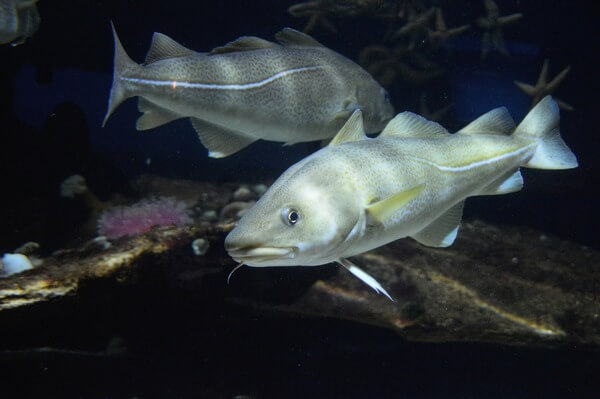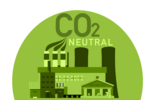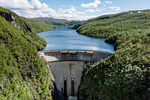News Release from windfair.net
Wind Industry Profile of
New foundations to make offshore wind turbines even greener
Still a relatively young industry, the offshore wind industry offers plenty of room for innovation. For example, the construction of the first offshore turbines was followed by the discovery that marine creatures use the foundations as artificial reefs and discover the wind turbines as a habitat for themselves. In the Netherlands, mussels and oysters were then deliberately settled in order to study this phenomenon more closely.
In Denmark, foundations are now to be built for an offshore wind farm, which will be designed directly as an artificial reef to provide the marine creatures with an optimal habitat. The 26 offshore wind turbines of the planned Aflandshage wind farm in the southern Öresund off Denmark's east coast will have foundations with a so-called 'Nature Inclusive Design'. Parts of the foundations will have a kind of artificial stone reef with crevices and thus hiding and breeding places for fish and small animals such as cod or crabs.
This was announced by the two companies involved, the utility company for Greater Copenhagen HOFOR (Hovedstadsområdet Forsyningsselskab), and the construction company Per Aarsleff A/S, which is to design, manufacture and install the foundations. It is hoped that this will increase biodiversity in the marine environment and improve living conditions for marine life, especially cod, which has declined sharply in Danish seas in recent years.
"The turbines will provide the Øresund region with abundant renewable energy, but the construction of wind farms is not CO2-free, and that is why we have decided to impose sustainability requirements on all our suppliers. In the tender documents for the foundations, we set requirements to consider and strengthen the marine environment as much as possible and to reduce the carbon footprint as much as possible," Henrik Plougmann Olsen, CEO of HOFOR, explains the approach. As a result, Per Aarsleff A/S applied with its innovative idea.
The environmental organisation Clean Seas has been drawing attention to the lack of rocky reefs in the sea for a long time - especially in the Öresund between Denmark and Sweden. Among other things, this has to do with the fact that for years industry has been extracting stones from the seabed and using them elsewhere without thinking about the consequences.
"In the fight to restore a healthy Danish marine environment at a high ecological level, rocky reefs are one of the best tools we have. Not only can they house entire ecosystems, but they can also ensure that our oceans can absorb more nutrients that are unfortunately discharged into the sea. At Rent Hav we are fighting for the restoration and construction of new stone reefs in Denmark, and we therefore welcome that HOFOR is launching a major industrial restoration initiative with more stone reefs," also says Heine Birk Hansen, board member from the Rent Hav organisation, which works to improve the marine environment.

Cod in particular are expected to benefit from the artificial reefs (Image: Pixabay).
The proposed design of the foundations is that they will be between 17 and 25 metres high and weigh up to 4,000 tonnes. Each foundation will support a wind turbine, which in turn will be 220 metres high at the tip of the rotor blades. When completed in 2026, the 300 MW wind farm will supply green electricity for 300,000 households.
But that's not all: the production foundations with the artificial reefs should also be as green as possible. Thus, when choosing the materials, the high carbon footprint of concrete was targeted and specific efforts were made to reduce it.
"At Aarsleff, we have twenty years of experience in building offshore wind turbines and work strategically with sustainability. We have developed a sustainability strategy specifically for this project with various initiatives that include greenhouse gas emissions, circular economy and employee engagement in sustainability. For example, the reinforcing steel in the foundations will be made almost exclusively from recycled iron, and the foundations will be recyclable as much as possible at the end of the turbines' lifetime," emphasises Jesper Kristian Jacobsen, CEO of Per Aarsleff A/S.
In addition, the so-called CEM III cement is used for the concrete. This type of cement uses blast furnace slag, a by-product of iron and steel production, to reduce the amount of normal Portland cement, which has a higher carbon content.
Design and planning will be undertaken in the coming months before concrete production, excavation and construction of the Stone Pillows will take place from 2024. The concrete will be produced as a prefabrication at the Aarsleff plant in Swinoujscie in Poland, where the foundations will be poured directly onto barges to be transported to Aflandshage and installed on the seabed by a special vessel.
To gain further knowledge, the condition of the foundations will be monitored throughout the life of the wind farm and the impact on the marine habitat will be documented.
- Author:
- Katrin Radtke
- Email:
- press@windfair.net
- Keywords:
- HOFOR, Per Aarsleff A/S, offshore, wind turbine, foundation, innovative, reef, artificial, cod, marine, life, wind farm, production, green, concrete



























